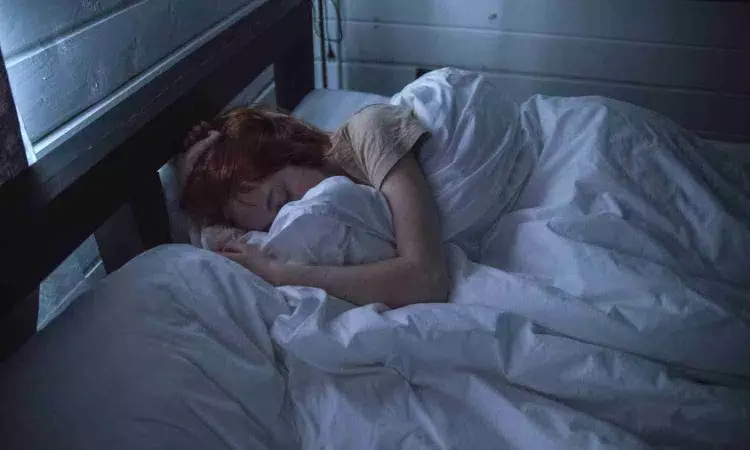- Home
- Medical news & Guidelines
- Anesthesiology
- Cardiology and CTVS
- Critical Care
- Dentistry
- Dermatology
- Diabetes and Endocrinology
- ENT
- Gastroenterology
- Medicine
- Nephrology
- Neurology
- Obstretics-Gynaecology
- Oncology
- Ophthalmology
- Orthopaedics
- Pediatrics-Neonatology
- Psychiatry
- Pulmonology
- Radiology
- Surgery
- Urology
- Laboratory Medicine
- Diet
- Nursing
- Paramedical
- Physiotherapy
- Health news
- Fact Check
- Bone Health Fact Check
- Brain Health Fact Check
- Cancer Related Fact Check
- Child Care Fact Check
- Dental and oral health fact check
- Diabetes and metabolic health fact check
- Diet and Nutrition Fact Check
- Eye and ENT Care Fact Check
- Fitness fact check
- Gut health fact check
- Heart health fact check
- Kidney health fact check
- Medical education fact check
- Men's health fact check
- Respiratory fact check
- Skin and hair care fact check
- Vaccine and Immunization fact check
- Women's health fact check
- AYUSH
- State News
- Andaman and Nicobar Islands
- Andhra Pradesh
- Arunachal Pradesh
- Assam
- Bihar
- Chandigarh
- Chattisgarh
- Dadra and Nagar Haveli
- Daman and Diu
- Delhi
- Goa
- Gujarat
- Haryana
- Himachal Pradesh
- Jammu & Kashmir
- Jharkhand
- Karnataka
- Kerala
- Ladakh
- Lakshadweep
- Madhya Pradesh
- Maharashtra
- Manipur
- Meghalaya
- Mizoram
- Nagaland
- Odisha
- Puducherry
- Punjab
- Rajasthan
- Sikkim
- Tamil Nadu
- Telangana
- Tripura
- Uttar Pradesh
- Uttrakhand
- West Bengal
- Medical Education
- Industry
Irregular sleep and late bedtimes tied to worse grades for high school students, finds research

Irregular sleep and late bedtimes are linked to worse grades and more school-related behavioral problems among teens, suggests a study funded by the National Institutes of Health (NIH). The authors stated that interventions to promote regular sleep schedules may boost adolescents’ academic performance.
The study, conducted by Gina Marie Mathew, Ph.D., and Lauren Hale, Ph.D., of Stony Brook University and colleagues, appears in Sleep. Funding was provided by NIH’s Eunice Kennedy Shriver National Institute of Child Health and Human Development.
Researchers analyzed data from nearly 800 adolescents participating in a larger study(link is external). Participants provided information on grades and school-related behavioral issues. They also wore a wrist accelerometer (a device that records the wearer’s movements) for a week so that study staff could estimate their sleep patterns.
Participants with more variable bedtimes had a greater chance of receiving a D or lower during the last grading period, compared to those with more consistent bedtimes. Adolescents who went to bed later, got up later or varied the number of hours they slept per night had fewer classes in which they received an A. Adolescents were more likely to be suspended or expelled in the last two years if they got up later, varied the number of hours they slept each night or if they varied the time they went to bed each night.
The authors theorized that delayed bedtimes could result in late school arrivals, which could affect learning and behavior. In addition, many adolescents are biologically inclined to later hours, which conflict with early school start times.
Reference:
Gina Marie Mathew et al, Actigraphic sleep dimensions and associations with academic functioning among adolescents, Sleep (2024). DOI: 10.1093/sleep/zsae062.
Dr Kamal Kant Kohli-MBBS, DTCD- a chest specialist with more than 30 years of practice and a flair for writing clinical articles, Dr Kamal Kant Kohli joined Medical Dialogues as a Chief Editor of Medical News. Besides writing articles, as an editor, he proofreads and verifies all the medical content published on Medical Dialogues including those coming from journals, studies,medical conferences,guidelines etc. Email: drkohli@medicaldialogues.in. Contact no. 011-43720751


